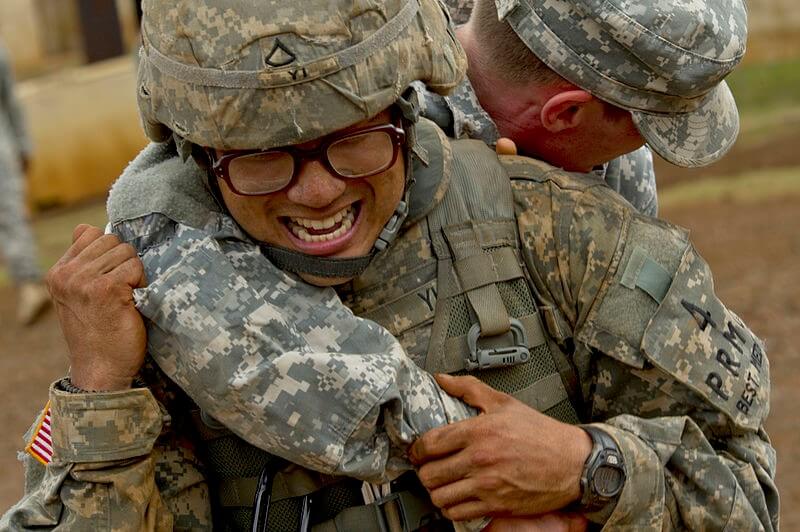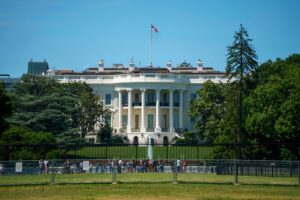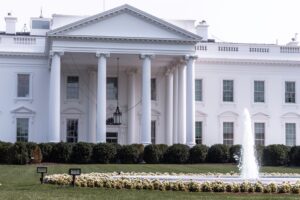Photo: Wikicommons
I write this on Memorial Day, the day we honor those who lost their lives in the course of serving in our country’s military. Like many Americans today, I don’t know many veterans, either living or deceased. And like many Americans today, not only did I not serve in the military, but I never even considered it while I was growing up. Among my fellow Americans, I’m not alone or unusual. While about 9% of the population fought in WWII, today’s active duty military comprises about 0.5% of the population—a little more than one million people, down from two million just before the end of the Cold War.
To put it bluntly, we have outsourced the common defense to a tiny minority of our fellow Americans, and military service is no longer a defining characteristic of the American experience. For most Americans, waging war no longer takes a personal toll nor demands personal sacrifice. Our wars are fought, not by our friends, and family, and neighbors, but by “other people” with whom we rarely or never interact. I don’t have a single friend or family member who fought in Iraq or Afghanistan. This separation from the reality and costs of war has serious consequences, I think, both for our culture at large, and for each of us personally.
When I was growing up, my reasons for not serving seemed reasonable. Although my father had served in Vietnam and one of my grandfathers in World War Two, I didn’t know many other friends or family who had served. And even though my dad continued to serve in the National Guard throughout my childhood, he never talked about, it and certainly never encouraged me to consider it as a path for myself.
Instead, like so many of my generation—I was born in 1977—I was encouraged to find meaning in and pursue whatever my heart desired. I was focused on myself, and it seemed normal to make my own goals and priorities the focus of my life. Certainly no one suggested otherwise.
Many of my generation were inspired to enlist in the U.S. Armed Forces after 9/11. But I was not. As I had grown older, I came to see the inhumanity and barbarism of war. I saw that war, all too often, resulted from self-interest, misunderstandings, national ego, and fear. I saw the terrorist attacks of 9/11 as a tragic but all-too-predictable result of America’s self-serving foreign policy in the Middle East. 9/11 made me sad about the state of my country, rather than inspiring me to serve it.
To me, the U.S. military seemed like part of the problem rather than the solution. I wasn’t surprised at all when stories emerged of atrocities committed by American troops during the Iraq War, such as abuse at the Abu Ghraib prison. I believed that the stories which made it into the news, of American soldiers engaged in rape, murder, and torture, were merely the tip of the iceberg. I was disgusted. War has always, I reflected, brought out the worst in human nature, and I thought myself to be better than that, and wanted none of it.
These were reasonable positions to hold at the time, and each still contains a kernel of truth for me. But I now regret my decision not to serve in the armed forces, and see it as a missed opportunity. It’s not that my scruples were wrong—it’s that they miss the larger significance and importance of military service to our free society, and that they fail to recognize that military service brings not only the power to do great harm, but the ability to do great good.
Refusing to serve allowed me to keep my hands clean. It let me stay above the complex moral calculations of warfare, and let others shoulder this significant physical and moral burden, even while I benefitted from their sacrifice. My ability to criticize war and soldiering from the safety of my own home represents, in a way, a kind of privilege—one I enjoyed only because others made great sacrifices on my behalf.
While I lived safely, I was letting a fellow American make the hard decision about whether to pull the trigger or not. While I lived comfortably, I was letting another American wrestle with the awful moral calculus of whether their life was more valuable than that of innocent bystanders too close to their enemies. While I lived freely, I was allowing still another American to decide whether to risk their own life to save a crying child caught in the crosshairs of battle. As Teddy Roosevelt famously said:
“It is not the critic who counts; not the man who points out how the strong man stumbles, or where the doer of deeds could have done them better. The credit belongs to the man who is actually in the arena, whose face is marred by dust and sweat and blood; who strives valiantly; who errs, who comes short again and again, because there is no effort without error and shortcoming; but who does actually strive to do the deeds.”
The truth is that our defense requires vigilance and hard choices. My criticisms of the American war effort, however valid, allowed me to remain safely on the sidelines, with no skin in the game and nothing at stake while others died on my behalf. This, I have come to see, was wrong.
Our country is currently suffering from the disease of unrestrained individualism – the creed which suggests that one’s own personal good, rather than the good of community or country, which should be one’s primary or only concern. Whether in the form of moral individualism and relativism on the left, or of economic individualism and relativism on the right, unrestrained individualism is a disease which breaks down our shared sense of civic and patriotic duty. It is a disease which weakens our ties to each other and our communities. It is a disease which over-emphasizes love of self, while de-emphasizing love of neighbor and love of our fellow citizens. Individualism is a disease which inverts President Kennedy’s iconic invocation to “Ask not what your country can do for you – ask what you can do for your country.”
Refusing to serve cut me off from my country, separated me from my fellow citizens, and allowed me to bask in my own supposed moral superiority. There’s no doubt I had valid concerns, but they were concerns which could have been expressed from within rather than from the outside. They were concerns which could have been more fruitfully addressed by working inside the system, rather than through my exhibiting indifference or hostility to it.
Serving my country through military service would have represented a commitment to my fellow Americans, however flawed they might be and however flawed our country’s policies might have been. I chose to criticize the system. I could have, rather, chosen to serve in it, and to improve it through participation.
Military service, of course, is not the only meaningful way to serve our country. I agree with my progressive friend and colleague Randy Lioz that universal national service is something we should consider as a country. National service could be an important element in healing our current polarization and other cultural woes. Perhaps many would opt for military service, while many others would choose to serve communities in need, teach in failing schools, or be a force for good by living in broken communities.
Americans need to make clear once again, through concrete actions, that we owe something to one another, that we’re willing to sacrifice for one another, and that in the most extreme circumstances, that we’re even willing to lay down our lives for one another. And the fact that our fellow-citizens have been so willing, in the past, is exactly what Memorial Day is meant to honor and remind us of.




